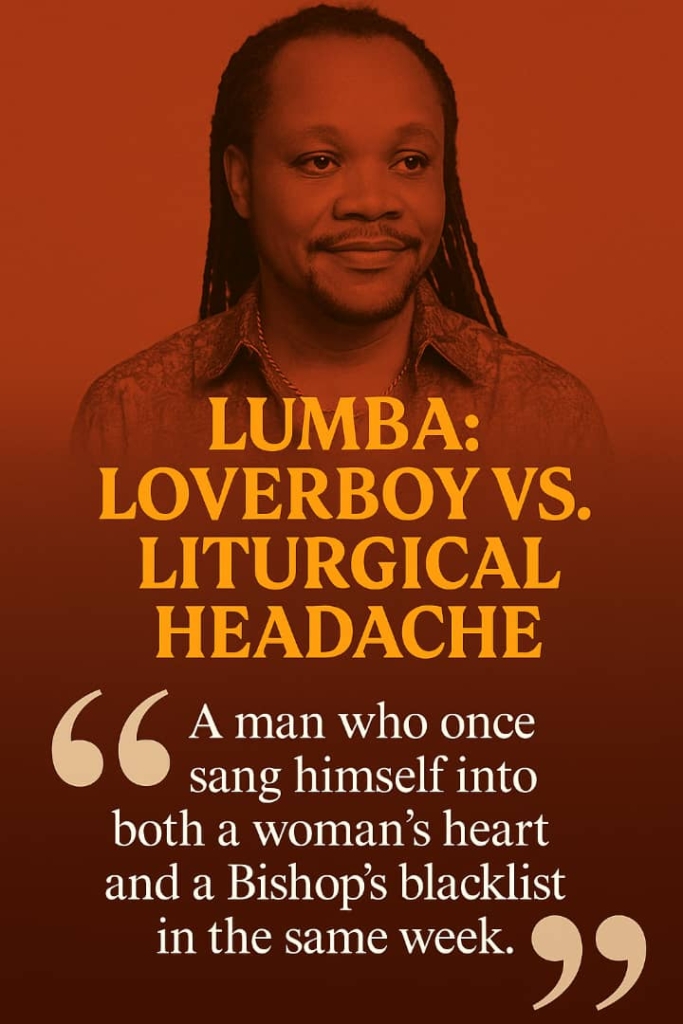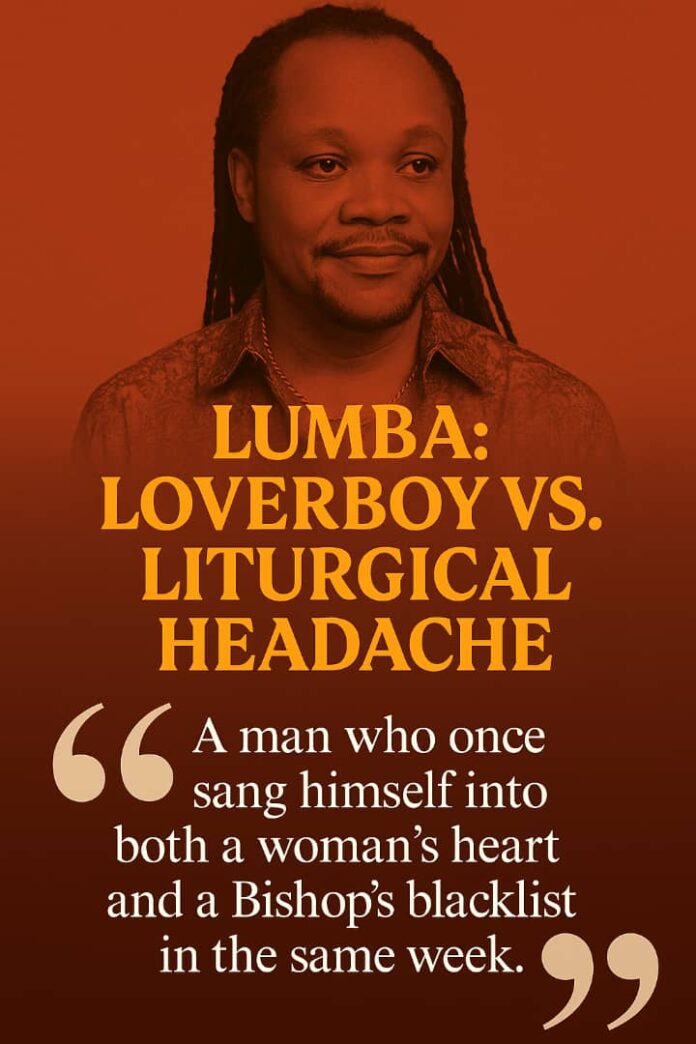
Ladies and gentlemen, fellow citizens of heartbreak, permit me to unbutton my black caftan of composure and mourn in key F sharp. Charles Kwadwo Fosu, better known as Daddy Lumba—our national emotional thermostat, cultural oracle, and spiritual gym instructor—has played his final note and exited the stage of life with all the swagger of Aben Wo Ha.
He didn’t just die. Oh no. That would be too ordinary for a man who once sang himself into both a woman’s heart and a bishop’s blacklist in the same week. What Lumba did was withdraw his spirit like an overdraft, leaving our ears with unfinished transactions and our hearts screaming “Track 11! Play Track 11!”
Ghana hasn’t just lost a musician. We have misplaced our entire emotional operating system. The one man who made grown men cry in trotro without shame. The one whose voice could take a broke boy from “I love you” to “I go make you proud, baby,” in three verses and a highlife beat.
In this funeral economy, where even coffins are going on hire purchase, only Lumba could have gotten us to agree—without parliamentary debate—that he deserves a state funeral and a Spotify shrine. Yes, the man who could quote Psalms at dawn and sing Sika Bekɔ Mpo Ni by dusk has done what no DJ at Nhyira FM could do—stopped the music permanently.
And now, here we are. A nation in lyrical limbo.
Lumba wasn’t just a singer. He was Ghana’s first emotional translator. He decoded the unspoken sighs of broken lovers, the half-smiles of side chicks, and the weeping wallets of responsible men during Valentine’s. When your mother didn’t approve of your girlfriend, Lumba was there. When your girlfriend didn’t approve of your bank balance, Lumba was still there.
This man gave voice to our voicemail. Our dormant feelings were awakened by that silky voice that could seduce a serpent or pacify a prophet, depending on the beat.
And now? That voice is silent. The studio is closed. The mic stand is weeping. The speakers have gone mute—not out of fault, but out of respect.
He was a man of contradictions so holy, even the Book of Ecclesiastes would’ve taken notes. He could release Biribi Gyegye Wo while quoting John 3:16, confuse morality with melody, and somehow, we applauded. Because deep down, we knew—we are all walking contradictions anyway. He just dared to release his as an album.
This is why we say he didn’t chase trends; he bullied them. He didn’t sing for followers; he summoned disciples. Twitter trends come and go, but Lumba is a mood that lives rent-free in our souls.
Even President Mahama, not one to miss a note in national grieving, released a eulogy that sounded suspiciously like a chorus from Yentie Obiaa. He said—and I paraphrase for dramatic effect—“The beats may have died down, but the legacy still slaps.”
That’s presidential Highlife grammar for: we will miss him deeply.
And we agree. Because, unlike the politicians who remix campaign promises every four years, Lumba gave us consistent hits—no featuring, no apology.
Do we cry? Yes.
Do we mourn? Absolutely.
Do we fight over his discography like a will? Most definitely.
But above all, we must organise. Not just a funeral with black-and-white tents and plastic chairs that buckle under grief. No, sir. We must declare a National Lumba Day—where citizens dress in all-white lace, speak only in Lumba lyrics, and drink sobolo to remember the man who made us believe in love, heartbreak, and susu savings.
We must build a monument shaped like his iconic perm. Or at least rename Kokroko Junction to Aben Wo Ha Interchange.
Let not our mourning be in mute. Let it rise like his falsetto, shake like his basslines, and confuse pastors as his lyrics often did.
Charles Kwadwo Fosu, you did not just perform. You translated our chaos. You were Ghana’s human Spotify before data bundles. You were the reason we fell in love, broke up, made up, and cried over Kofi Brokeman with dignity.
Now rest—not in peace—but in melody.
Because silence, after you, feels like blasphemy.
DISCLAIMER: The Views, Comments, Opinions, Contributions and Statements made by Readers and Contributors on this platform do not necessarily represent the views or policy of Multimedia Group Limited.
DISCLAIMER: The Views, Comments, Opinions, Contributions and Statements made by Readers and Contributors on this platform do not necessarily represent the views or policy of Multimedia Group Limited.


